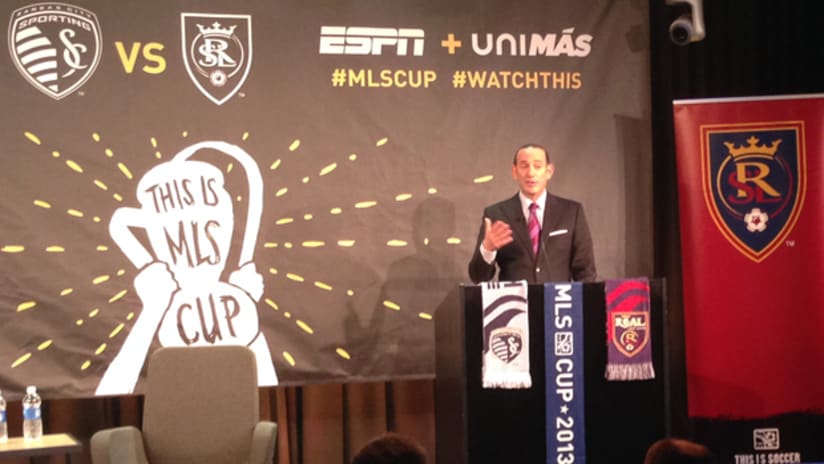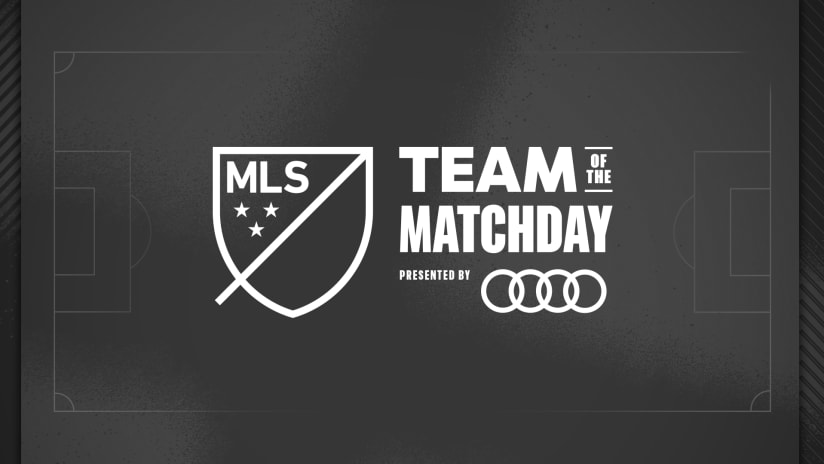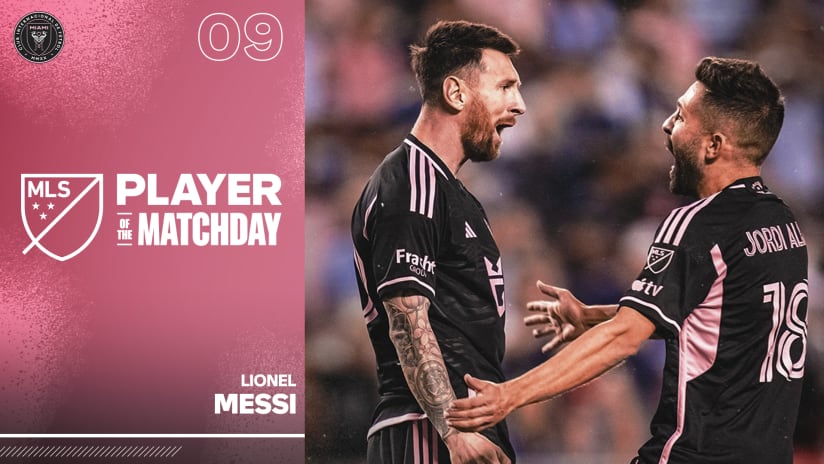NEW YORK – Major League Soccer seriously examined the possibility of shifting the league's 2014 schedule to align with the FIFA calendar.
Commissioner Don Garber confirmed it during his annual State of the League address on Tuesday at Google headquarters in Manhattan.
The MLS Commissioner said that the "comprehensive process" and "extensive discussions" resulted in a proposed league schedule that would have started in February with a May-July summer break and a December-February winter break. But the long extended layoffs and winter weather considerations in cities like Toronto proved to be the big stumbling blocks.
"We have not been able to figure out a way to solve the break and also figure out a way to justify moving those games from the very valuable May and June time period into February and end of December," Garber said. "We will continue to look at it … but it’s not something we’re going to do in the short-term."
And while many continue to be focused on changing the current MLS schedule format, the league is just hoping for more consistency.
According to Garber, a consistent schedule is one of the factors that could help improve the league's ratings. He pointed out how "you get dizzy" looking at a heat map of the MLS calendar compared to other soccer leagues that enjoy more consistent TV windows.
"We’ve had games broadcast every day of the week, most of them at different times," Garber said. "There was little to no consistency on that schedule either with broadcast partners or through our own scheduling.
"What we need to have is a consistent game or games of the week that run from the beginning to the end of the year as much as we can at consistent times. If we’re able to achieve that, that gets us halfway there."
The league is doing its own part to help grow the TV audience, specifically focusing on: growing the fan base, marketing, improving stadium environments and boosting the quality of the product. But the right TV partners — MLS is currently in negotiations with national TV contracts expiring at the end of 2014 — are also a major factor, according to Garber, who cited NBC's impact on English Premier League programming this year.
"I think what NBC did for the Premier League is unprecedented in the history of pro sports," he said. "They really took the Premier League and made it as important as anything going on in the NBC Universal family. And it’s paying off in ratings and it’s making economic sense for them. If we’re able to create that same kind of scenario with a broadcast partner I think it’ll be beneficial to us.
"We have to find a partner that gives us the right schedule, the right promotion and marketing, that is embracing us in ways that will allow us to have our programming be valuable and be a priority both for the broadcaster and for our fans," he continued. "If we are able to achieve that, I believe our television ratings will grow."
Some argue that flex TV scheduling — the ability to swap more meaningful matches into the league national TV windows late in the season — would also help ratings and Garber doesn't disagree. But he called it "almost logistically impossible" due to the impact that weekend changes would have on teams also facing midweek competitions.
One thing that might be more doable? Simultaneous matches in the final weekend of the regular season as teams chase playoff spots and playoff seeding.
"We’re trying to figure that out," Garber said. "You can have the ability to capture some of that drama."










